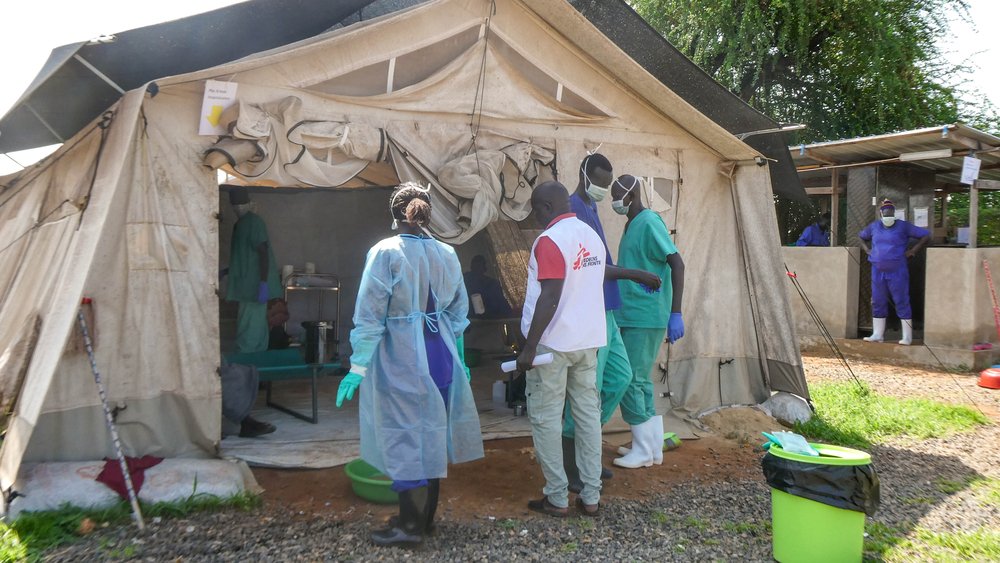MSF calls for urgent scale-up in water, sanitation programmes amid rising cholera cases in Abyei, South Sudan

MSF has raised an alarm that, while medical response efforts are ongoing, the onset of the rainy season poses a grave threat. The resulting floods are expected to disrupt access, complicate aid delivery, and hasten the spread of waterborne diseases such as cholera.
Médecins Sans Frontières (MSF) has warned that a cholera outbreak in the Abyei Special Administrative Area, South Sudan, risks further spread if water and sanitation (WASH) conditions are not urgently improved.
In a statement, the medical humanitarian organisation said people living in Abyei, both displaced populations and host communities, are in overcrowded areas with limited access to basic services.
More To Read
- Southeast Asia faces catastrophic floods as tropical storm kills 600 hundred
- MSF demands protection of civilians after deadly attack in Upper Nile State, South Sudan
- MSF raises alarm over extreme malnutrition as Sudan crisis deepens
- Climate change is making the world sick: COP30 report links climate change to new disease hotspots
- Garissa town residents call for urgent drainage fix as floodwaters swamp businesses, homes
- MSF resumes critical medical activities in South Sudan's Yei County
The situation is particularly dire in informal settlements like Amiet market, where over 50,000 people who fled the war in Sudan are living with little access to safe drinking water or sanitation infrastructure such as latrines.
Many are forced to defecate in the open due to the absence of toilets, significantly heightening the risk of disease transmission.
Abyei is an administrative area claimed by both Sudan and South Sudan, lacking a formal governance structure. This has constrained infrastructure development and denied the population access to essential services like healthcare and education.
Despite these challenges, Abyei remains a key transit point between the two countries and hosts the Amiet market- a major economic hub for residents on both sides and a hotspot for intercommunal tensions.
MSF has raised an alarm that, while medical response efforts are ongoing, the onset of the rainy season poses a grave threat. The resulting floods are expected to disrupt access, complicate aid delivery, and hasten the spread of waterborne diseases such as cholera.
On June 11, health authorities in Abyei officially declared a cholera outbreak following a sustained rise in reported cases.
This is not the first appearance of cholera in South Sudan. The country has been grappling with a widespread outbreak since September 2024, with cases reported in multiple states, including Unity, Jonglei, Upper Nile, and Central Equatoria, which hosts the capital, Juba. Abyei, in the north-west of the country, is one of the latest areas to be affected.
"The situation in Amiet is critical. The patients admitted with cholera to Ameth Bek Hospital in Abyei Town confirm an active outbreak. The risk of spread to Abyei Town is high, especially with the return of the rains, extremely poor hygiene conditions, and the continued arrival of people fleeing Sudan into an already overcrowded area," said Stéphanie Dongmo, MSF Project Coordinator in Abyei.
MSF has been responding to the outbreak by treating patients exhibiting symptoms consistent with cholera, such as acute watery diarrhoea, at its 20-bed cholera treatment unit (CTU) established at Ameth Bek Hospital since 11 April.
Between June 2 and 28, a total of 333 suspected cholera cases were treated at the MSF CTU. The last three weeks alone saw a sharp rise in cases: 80 patients were treated between June 9 and 15; 77 between June 16 and 22; and 94 between June 23 and 28.
"MSF calls for the urgent rollout of cholera vaccines and a vast improvement in water, sanitation, and hygiene programmes by all relevant actors in the affected areas. Immediate and comprehensive actions such as deploying water trucks, distributing soap, constructing additional latrines, and improving drainage systems are critical to mitigating this crisis. These actions are essential to save lives and prevent further escalation of this public health emergency in Abyei," Dongmo added.
Since the outbreak began in September 2024, over 75,000 cholera cases and more than 1,300 deaths have been reported across South Sudan, according to the World Health Organisation as of June 27, 2025.
Top Stories Today















































